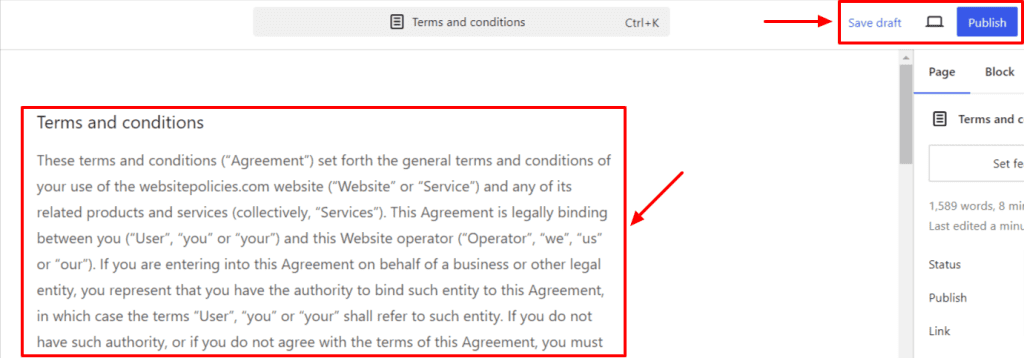This step-by-step guide will walk you through how you can create and add personalized terms and conditions for your WordPress in minutes.
Though the terms and conditions page is not legally required, it’s highly recommended because it provides legal protection and sets out guidelines for how your users should interact with the site, thereby reducing potential liabilities and safeguarding the website’s interests and intellectual property.
To begin with, sign up on WebsitePolicies or login if you already have an account.
Create Terms and Conditions For Your WordPress Website
Step 1: From your dashboard, click on the “Create new policy” button and choose “Terms and conditions.”

Step 2: Start filling out the questionnaire and click “Next” to continue to the next set of questions to complete creating your terms and conditions.
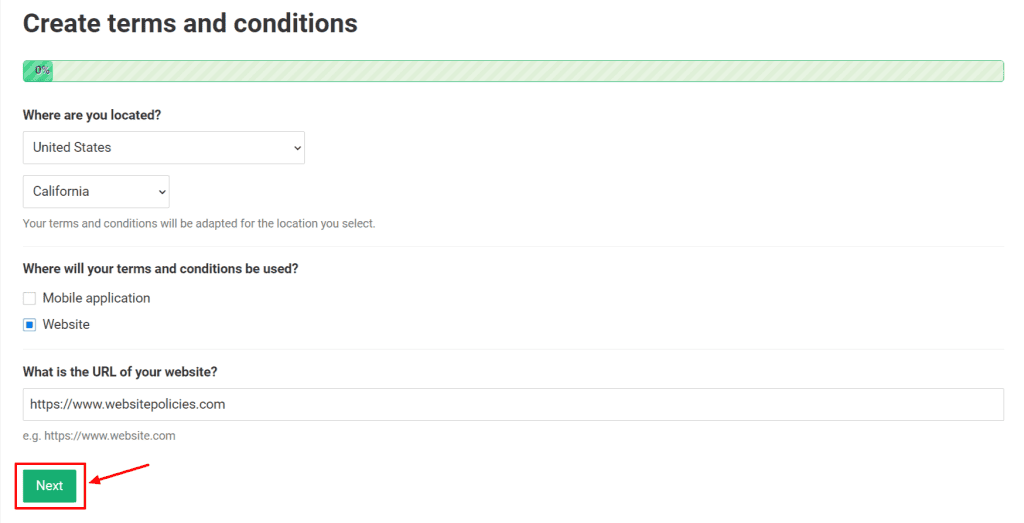
Step 3: Once the terms and conditions is generated, click on the “Add to my website” button. You may also customize the policy’s appearance and add custom clauses if you prefer before adding it to your site.
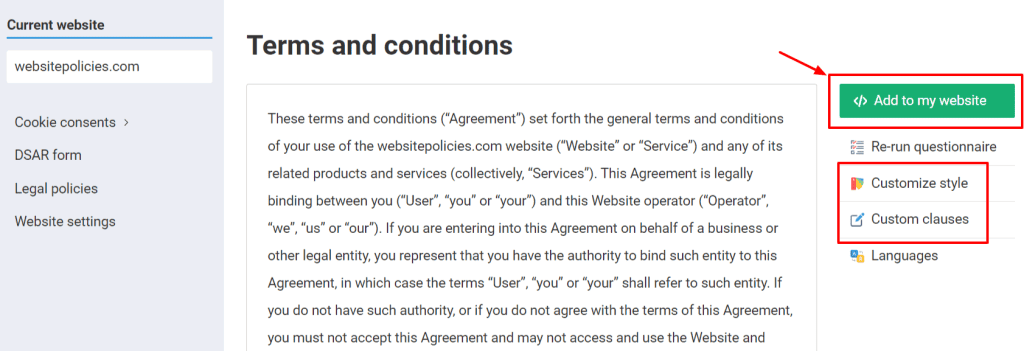
Step 4: Choose from the available options to add terms and conditions to your WordPress website.
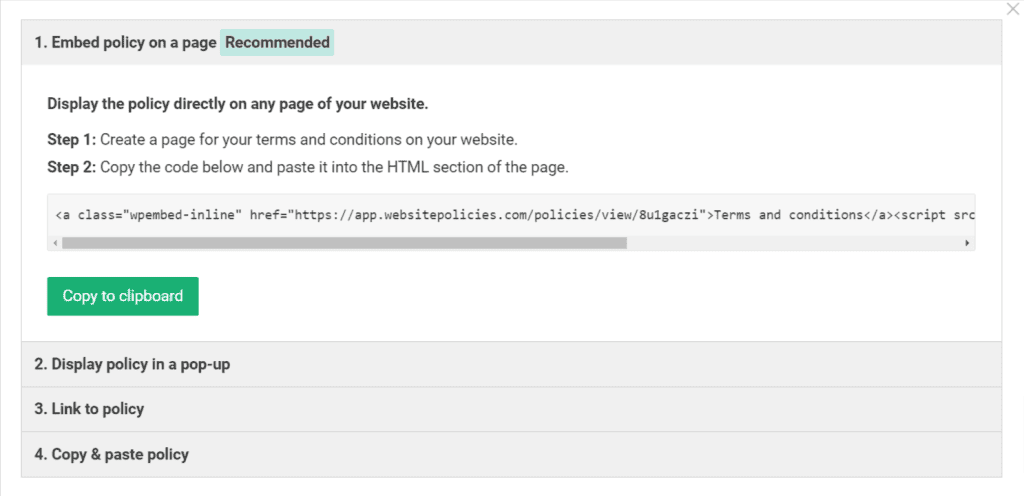
Embed Terms and Conditions on Your WordPress Site
Step 1: Log in to your WordPress dashboard. On the left-hand menu, go to “Pages” and click “Add New Page.”

Step 2: Under the “Add a page” menu, choose “Blank page” and enter “Terms and Conditions” as a page title.

Step 3: A “+” icon appears as you hover on the page. Click it to open all the block options, then find and select “Custom HTML.”

Step 4: Retrieve your terms and conditions and copy the code under “1. Embed policy on a page” by clicking “Copy to clipboard.”
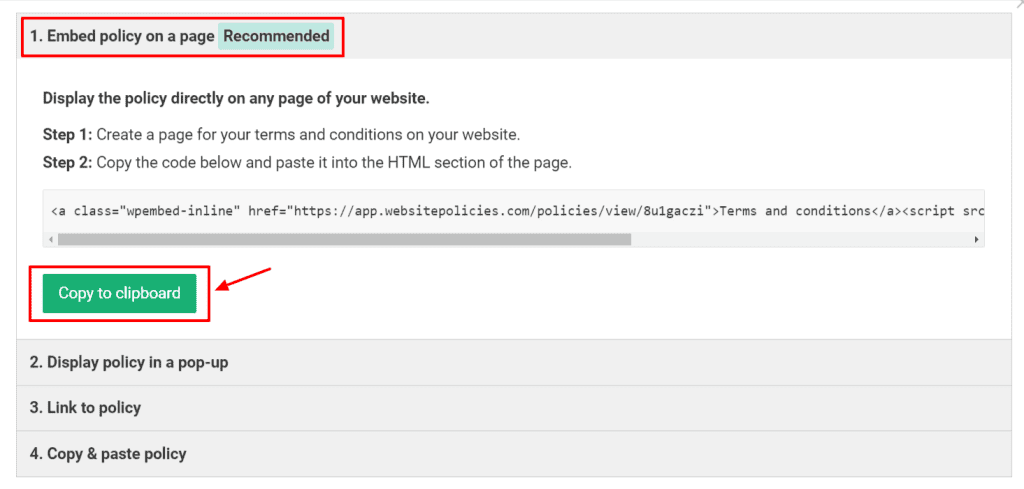
Step 5: Return to your WordPress account. While on the “Terms and Conditions” page, paste the code into the HTML block, and click “Save draft.”

Link to Terms and Conditions From Your WordPress Website
Step 1: On the side panel of your WordPress dashboard, go to “Appearance” and click “Menus.”

Step 2: On the “Add menu items,” click “Custom Links.”

Step 3: Retrieve your terms and conditions and copy the code under “3. Link to policy” by clicking “Copy to clipboard.”
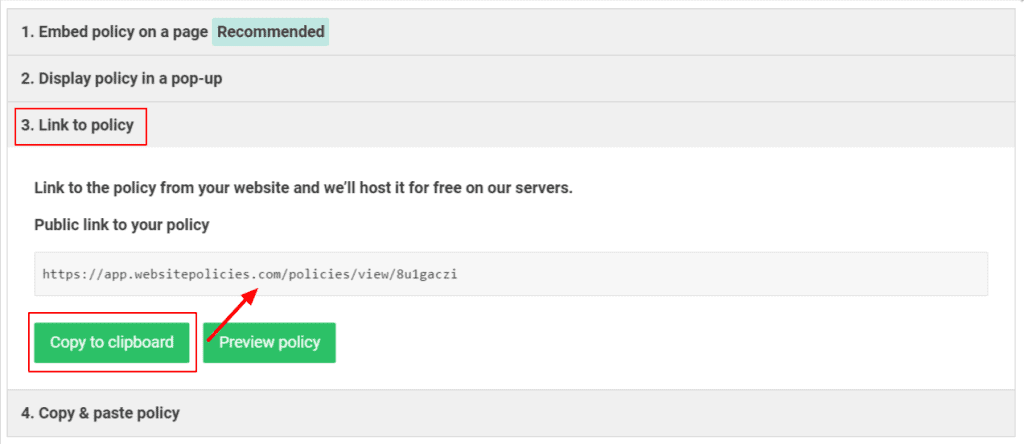
Step 4: Return to your WordPress site. Paste the code under the “URL” textbox and type “Terms and Conditions” in the “Link Text” field. Once done, click the “Add to Menu” button.

Copy & Paste Terms and Conditions to Your WordPress Site
Step 1: In your WordPress dashboard, go to the side panel and click “Pages,” then select “Add New Page.”

Step 2: Choose “Blank page” under the “Add a page” menu, and enter “Terms and Conditions” for the title.

Step 3: Retrieve your terms and conditions and copy the code under “4. Copy & paste policy” by clicking “Copy to clipboard.” You can choose from either “HTML format” or “Plain text format.”
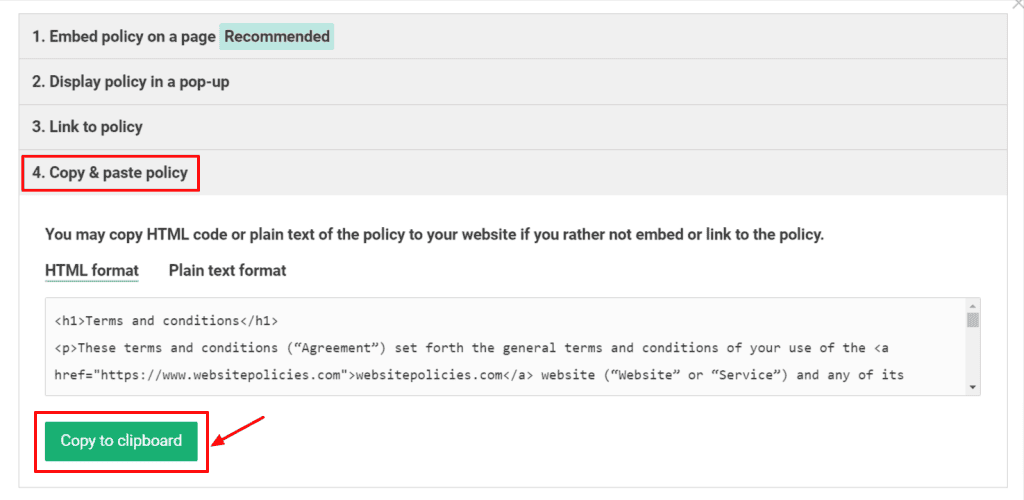
Step 4: Return to your WordPress site. While on the “Terms and Conditions” page, paste the code into a “Paragraph” block. Click “Save draft” once done.
